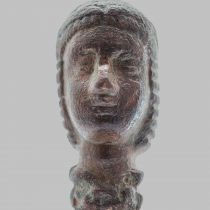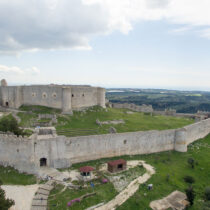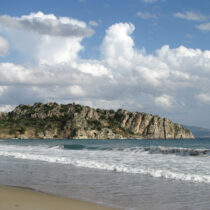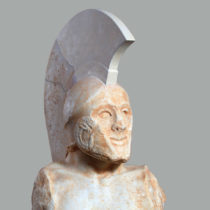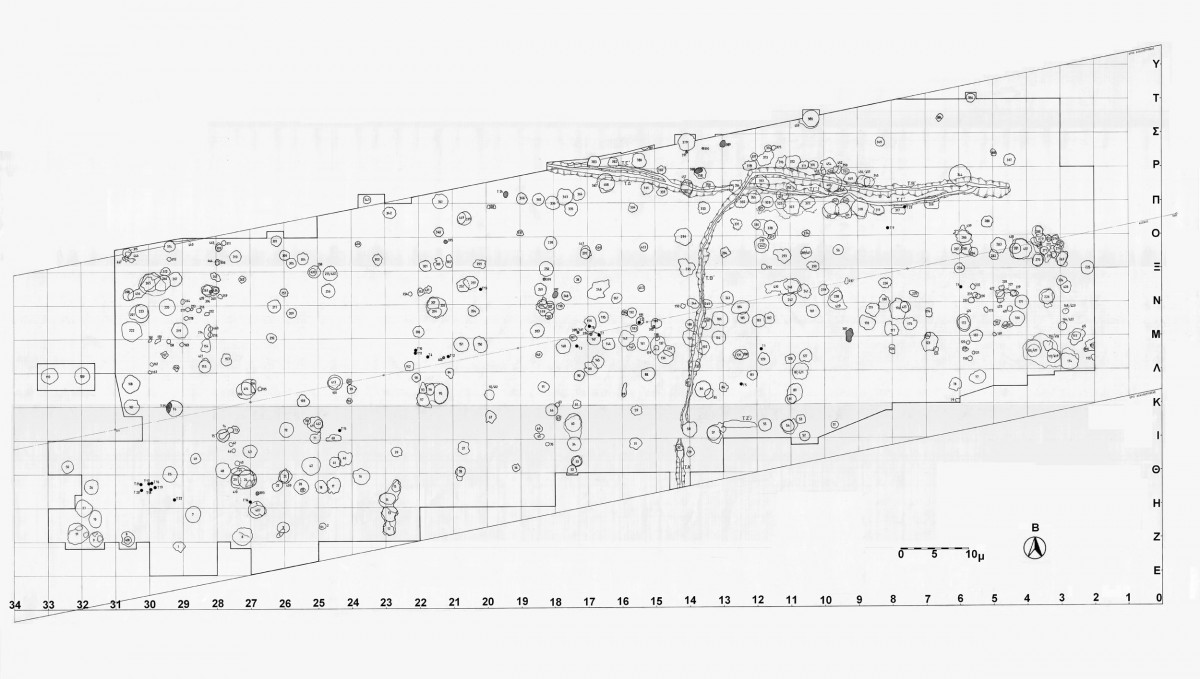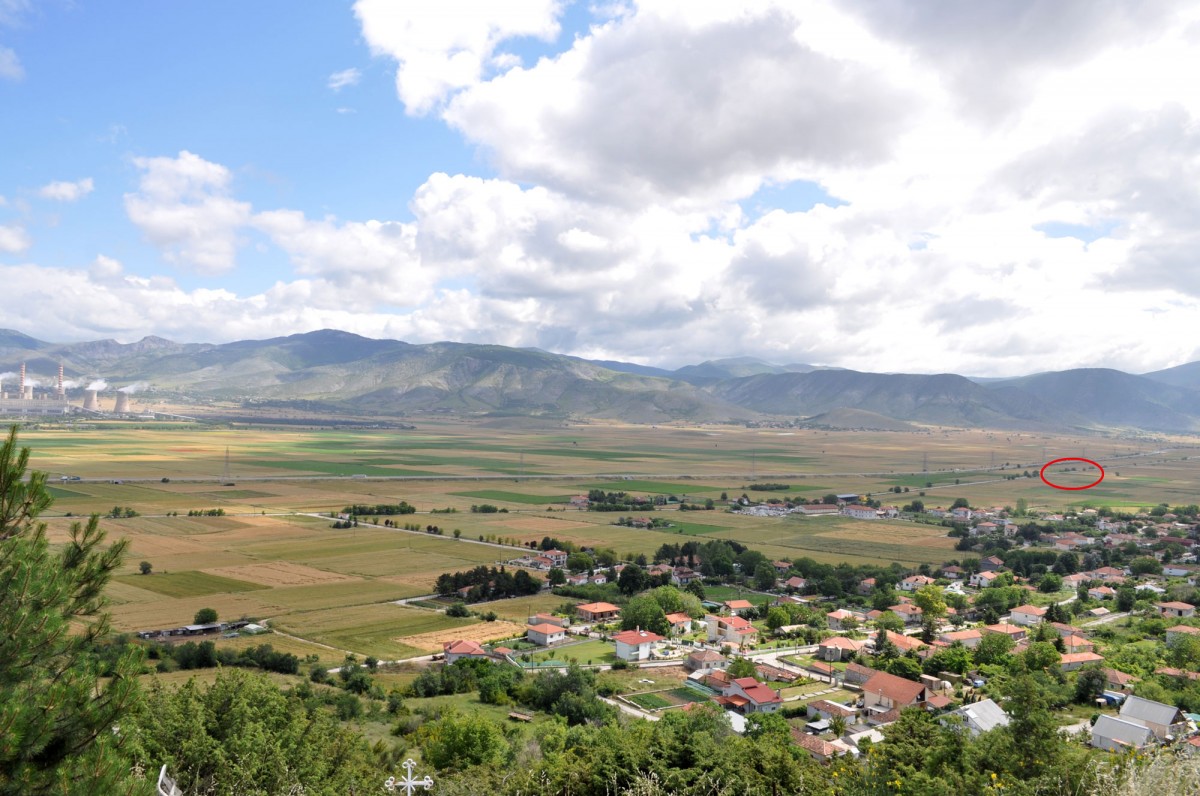PhD position in Classical Archaeology and Ancient History
The Department of Archaeology and Ancient History, Uppsala University, has an opening for a four year PhD position in Classical Archaeology and Ancient History.
Walls of the Prince: Egyptian Interactions with Southwest Asia in Antiquity
Walls of the Prince offers a series of articles that explore Egyptian interactions with Southwest Asia during the second and first millennium BCE.
Roman skeletons reveal secrets of life in antiquity
Ancient bones can offer valuable information on our ancestors. They can provide an insight on their diet and nutrition, the illnesses they suffered from, and other features of their lives.
Ancient Chinese board game found in looted tomb
Archaeologists in China have discovered an ancient board game in a looted 2,300-year-old tomb near Qingzhou City.
The ancient Greeks in Ukraine
Archaeologists from the University of Warsaw and the National Ukrainian Academy of Sciences confirmed the location of a 2,000-year-old fortified Greek settlement along the Dnieper River.
Impressive new mosaic uncovered in Lod
Archaeologists have revealed a second high-quality mosaic floor in the southern part of the 1,700-year-old villa in Lod while preparing to build a visitor center at the site.
‘Fourth strand’ of European ancestry originated with hunter-gatherers isolated by Ice Age
Populations of hunter-gatherers weathered Ice Age in apparent isolation in Caucasus mountain region for millennia, later mixing with other ancestral populations, from which emerged the Yamnaya culture that would bring this Caucasus hunter-gatherer lineage to Western Europe.
New find in Galilee gives new perspective
Archaeologists working at the ruins of Khirbet el-Eika this summer, a site west of the Sea of Galilee, discovered a Hellenistic bronze incense shovel that might help date the settlement of the hills near the Kinneret by Jydeans.
Inca child-mummy DNA sequencing yields unique results
Researchers have partly identified the genetic code of an Incan mummified child found by climbers in Cerro Aconcagua, an Argentinean mountain, 30 years ago.
The Neolithic settlement of “Toumba Kremastis Koiladas” (Part 3)
The rescue excavation at Toumba Kremastis Koiladas brought to light 462 pits that were studied for their dimensions, construction features, inside stratigraphy and content.
Selinunte, an ancient Greek city in Sicily yields its secrets
Excavations at Selinunte, an ancient Greek city in Sicily, are yielding valuable information on its population, plan, and function, in its entirety.
Early farmers exploited beehive products at least 8,500 years ago
Humans have been exploiting bees as far back as the Stone Age, according to new research from the University of Bristol published in Nature.
Breakthrough for mining research in the Bronze Age
Mining already took place 3,500 years ago in the Austrian region of Montafon.
Pieces of Roman Building Reunited after 2000 years
Two pieces from a Roman building sign destroyed 2000 years ago, possibly by the legendary Boudica, have been reunited thanks to a remarkable discovery made by the University of Reading.
Egypt’s Great Pyramid hidden anomalies revealed
Scientists in Giza, Egypt, have discovered anomalies in Cheop's Great Pyramid with the use of infrared thermal scanning.
Earliest church in the tropics unearthed in former heart of Atlantic slave trade
Archaeologists from the University of Cambridge have unearthed the earliest known European Christian church in the tropics on one of the Cabo Verde islands.
New drought atlas maps 2,000 years of climate in Europe
Αn atlas based on scientific evidence maps the reach and severity of dry and wet periods across Europe, and parts of North Africa and the Middle East, year to year over the past 2,000 years.
Mycenaean Wall Painting in Context. New Discoveries, Old Finds Reconsidered
The present book offers an up to date insight into new discoveries of Mycenaean wall painting and new iconographic interpretations of old material, excavated long ago but never properly published.
A comparative Mediterranean perspective on the Early Bronze Age Cyclades
Cyprian Broodbank, Disney Professor of Archaeology at the University of Cambridge, will address the topic in the framework of the Cycladic Seminar series.
A Neolithic smokehouse was discovered in Siberia
Archaeologists in Siberia have discovered a smokehouse at a Neolithic site during excavation works in the summer.
Important insights into the structure of the ancient remains of Haft Tappeh
Archaeologists from Mainz University continue their excavation work in Iran.
17th century undelivered correspondence sheds light on everyday life
A chest in the Museum for Communication in Hague, containing 2,600 undelivered letters, has been rediscovered thanks to new scanning techniques.
The largest to have existed – giant rat fossils
Archaeologists with The Australian National University (ANU) have discovered fossils of seven giant rat species on East Timor, with the largest up to 10 times the size of modern rats.
The Neolithic Settlement of ’’Toumba Kremastis Koiladas’’ (Part 2)
Based on excavation data, this article examines settlement boundaries in both Greece and the Balkans and the issue of burnt Neolithic habitations in Kremasti.

